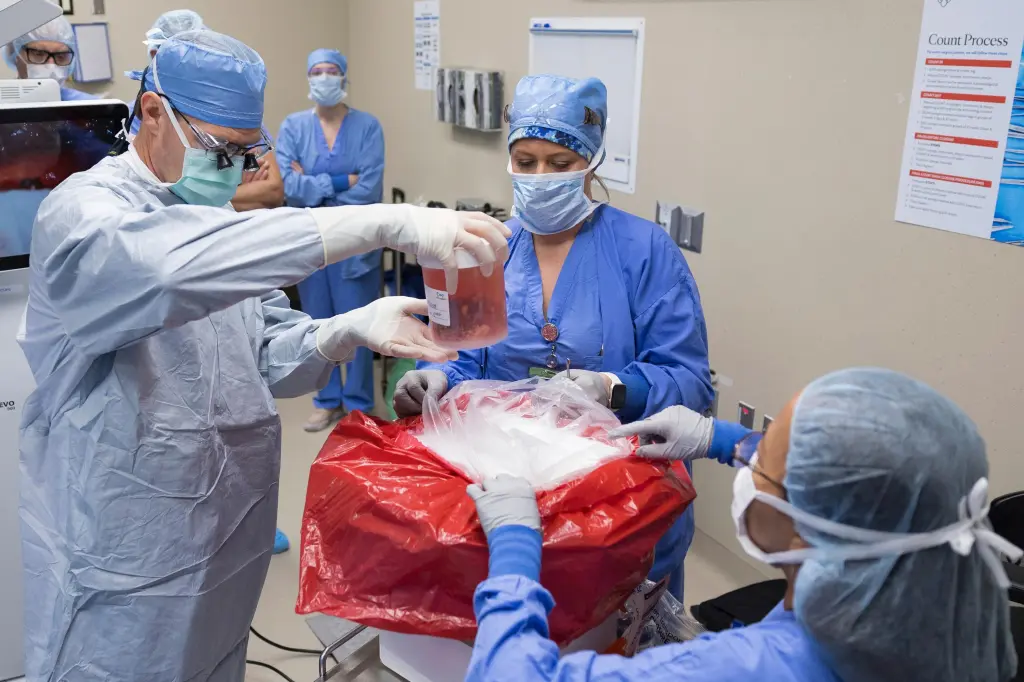Copyright Norfolk Virginian-Pilot

The Richmond-based United Network for Organ Sharing has operated the country’s organ transplant network for almost 40 years. But it is unclear what role UNOS will have in the transplantation of kidneys, livers and other organs after Dec. 29. The nonprofit’s contract ends that day, and the federal government has given UNOS no information about how it plans to manage the network afterward, said Paige Adrians, a spokesperson for UNOS. The government has said it will break up UNOS’ contract into pieces and divvy up its work among multiple contractors. But the health department has not issued task orders or begun the process of transitioning the work. And it is unclear if any progress is being made during the federal government shutdown that began Oct. 1. UNOS has already furloughed some staff after the health department instructed the contractor to cease some of its operations. Now the nonprofit and its roughly 360-person staff have an uncertain future. Congress passed the National Organ Transplant Act in 1984 and awarded the first contract to operate the Organ Procurement and Transplantation Network to UNOS in 1986. The nonprofit won every contract thereafter until last year. Headquartered on North Fourth Street downtown, UNOS operates a network that includes about 250 transplant centers and 55 regional organ procurement organizations. There are more than 100,000 Americans currently on the waiting list for a new organ, and this year, about 20 Virginia residents have died each month waiting for an organ, according to UNOS data. Over the years, critics have said the network lacked sufficient logistics, oversight and modern technology. In the summer, a federal investigation found numerous safety problems in organ transplantation. UNOS’ CEO, Maureen McBride, told a congressional committee in July that there is no greater priority for UNOS than “a safe, effective and trustworthy organ donation and transplant system.” In 2023, President Joe Biden signed a bill splitting UNOS’ contract into pieces. The federal health department chose 14 finalists to compete for work within the network, with UNOS among them. The health department extended UNOS’ contract through Dec. 29, 2025, but no more extensions are available. The government will have to either negotiate a new contract with UNOS or select new contractors. If the government wants new contractors, it will have to issue task orders for companies to bid on different facets of work and then pick the winners. So far, the government has chosen two contractors to do small portions of UNOS’ work. Last year, a contractor called the American Institutes for Research, based in Arlington County, won a task order to support the transplant network’s board of directors. Last month, the Fairfax County-based Guidehouse Digital won a contract to manage a patient services call line. But the health department has not yet directed UNOS to transition either of those jobs to the new vendors. “The government still needs to issue task orders for the vast majority” of organ transplant work, Adrians said. It is unclear how and when the health department would make that transition. The work to determine the network’s future might have stopped during the shutdown. The Health Resources and Services Administration, the federal agency that oversees UNOS, said it is furloughing just under half its employees, and the staffers who deal directly with UNOS have stopped working, Adrians said. A spokesperson for the health department did not respond to a request for comment. UNOS has spent months asking the health department to discuss its plans for the system, Adrians said, but it has not gotten an answer. Sen. Chuck Grassley, R-Iowa, has long pushed for changes to the transplant network. He said last week that the health department needs to implement the changes the new law requires. “The cost of inaction could potentially result in another delay in moving on from the current contractor,” Grassley said in a response to the Richmond Times-Dispatch. UNOS furloughs 90 employees Earlier this month, UNOS said it would furlough 90 employees, about a quarter of its workforce, due to the shutdown and a lapse in reimbursement for its work. While operation of the organ matching system and other vital systems will stay online, the health department instructed UNOS to stop much of its work convening committees and maintaining policies. UNOS has asked lawmakers and stakeholders to end the shutdown and fully resume all organ transplant network operations, Adrians said. “UNOS wants to get back to the important work” of policy development, research and monitoring but cannot until the health department lifts its stop-work order, Adrians added. According to UNOS, the government owes the contractor more than $10 million in reimbursement for UNOS operations. The nonprofit earns revenue in government reimbursements. It also collects fees from transplant hospitals when a patient joins the waitlist. A spokesperson for the health department suggested earlier this month that UNOS was not sufficiently explaining its reimbursement requests, saying the days of “rubber stamping” UNOS’ invoices during the Biden administration are over. Adrians rejected the idea that the health department ever rubber stamped invoices, saying the contractor provided thousands of pages of documentation and spent hours answering questions about expenses. “UNOS is evaluating the situation week by week,” Adrians said. “The staff furloughs and the impending contract expiration have created tremendous uncertainty for our workforce.” UNOS already reduced its staff in the spring. The nonprofit, which employs about 360 people, had roughly 600 staffers in 2023, according to tax records.



